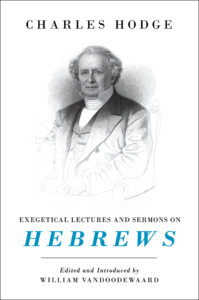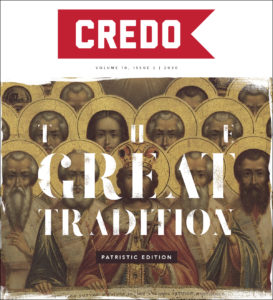 Before Charles Hodge taught theology at Princeton Seminary, he was a student of biblical languages and exegesis. He wrote commentaries on books of the Bible long before he wrote his Systematic Theology, serving as a teacher of biblical languages and exegesis for twenty years before switching over to theology in 1840. He published commentaries on Romans, First and Second Corinthians, and Ephesians, and students of Scripture have greatly appreciated these works for their clear-minded analysis of the text, their theological clarity, and their devotional warmth.
Before Charles Hodge taught theology at Princeton Seminary, he was a student of biblical languages and exegesis. He wrote commentaries on books of the Bible long before he wrote his Systematic Theology, serving as a teacher of biblical languages and exegesis for twenty years before switching over to theology in 1840. He published commentaries on Romans, First and Second Corinthians, and Ephesians, and students of Scripture have greatly appreciated these works for their clear-minded analysis of the text, their theological clarity, and their devotional warmth.
Other exegetical materials Hodge wrote were never published. In fact, lots of things Hodge wrote never made it into print. The Princeton Theological Seminary Library archives contains forty-seven boxes of Hodge’s papers and manuscript materials, filling just under eighteen linear feet of shelf space. Taken as a whole, these boxes are a kind of theological scrapbook, with many years of manuscript material all preserved and gathered together for future posterity. The jewel of this collection, in my opinion, is the extensive collection of Hodge’s lecture notes on theology. When Hodge began writing his Systematic in the late 1860s, he did so with little reference to his previously written lecture notes. According to Paul Gutjahr, Hodge “sat down and composed his Systematic anew,” meaning that lots of theological material still squirreled away at Princeton has never been thoroughly examined. It needs to be transcribed and published so that the full extent of Hodge’s theological thought can be more carefully understood and appreciated. Such archival work is long overdue.
William VanDoodewaard has drawn from archival material to produce a small and attractive collection of exegetical notes and sermon outlines on the book of Hebrews. The little book is called Exegetical Lectures and Sermons on Hebrews (Banner of Truth, 2019). Hodge’s comments are brief, but they offer useful suggestions as to how he interpreted the book overall. Viewing Paul as the author, Hodge presents explanatory comments on the text and helpfully lays out interpretive options for difficult passages like the warning passages in Hebrews 6. Hodge’s interpretive thoughts and exegetical comments were based on the Greek New Testament itself, and readers who will benefit most from his exegetical comments are those who have at least a basic familiarity with New Testament Greek. After moving through the book of Hebrews systematically, the book concludes with fifteen sermon outlines that reveal how Hodge saw various passages in Hebrews applying to the spiritual life of believers directly.
I hope that more books of this nature will be put into print. Scholars are beginning to assess Old Princeton afresh, and more material like this needs to be put into publication for this to happen.


